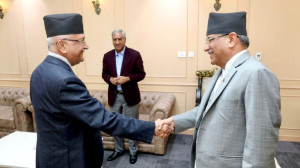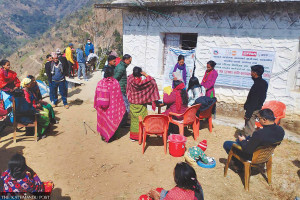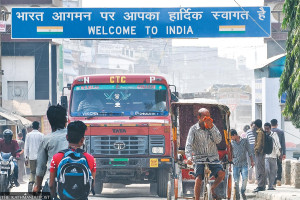 19.12°C Kathmandu
19.12°C KathmanduPolitics
National Assembly instructs government to make crucial laws
Only 111 laws out of 151 needed to implement the federal constitution have been enacted so far.
Tika R Pradhan
The National Assembly on Monday instructed the government to expedite the process of formulating crucial laws, whose absence has hindered a full-fledged implementation of the Constitution.
The upper house issued the instruction on Monday after discussing a report prepared by a sub-committee formed under its Legislation Management Committee.
The report prepared by the Legislation Management Committee of the National Assembly said only 111 laws among the 151 needed to implement the Constitution have so far been enacted. Still, 40 Acts need either major amendments or replacement with new ones to bring them in sync with the statute, according to the study.
The report stated that the three tiers of government had failed to make the necessary laws on time. The country has yet to draft 40 laws as the country is marking its eighth anniversary of the promulgation of the 2015 constitution next month. Following the discussions on the report at the upper house meeting, National Assembly Chairman Ganesh Timilsina instructed the government to make the long overdue laws, at the earliest.
Addressing the upper house, Prime Minister Pushpa Kamal Dahal informed that some bills are on their way to Parliament. “The government is committed to formulating the deficient laws,” Dahal said. The prime minister informed the House that 15 different bills were under discussion in Parliament while the government was working to register the Federal Civil Service Bill and bills related to school education that are also related to the implementation of federalism.
According to the report, the provincial and the local governments have not been able to prepare the needed laws in the absence of federal Acts and successive governments have not shown an urgency even for having the Federal Civil Service Act and the Federal Education Act, which are among the most important laws to implement federalism.
Members of the study team said laws related to health, citizenship and the authority of the President and Vice-president have also not been promulgated. And, some of the laws date as far back as 1953. Similarly, dozens of Acts from the Panchayat era are still in place including the Education Act from 1972 and the Infectious Disease Act 1962.
However, the prime minister tried to defend his government’s delay in making those laws saying the government is working on the bills which had become obsolete with the termination of the term of the previous House of Representatives.




















